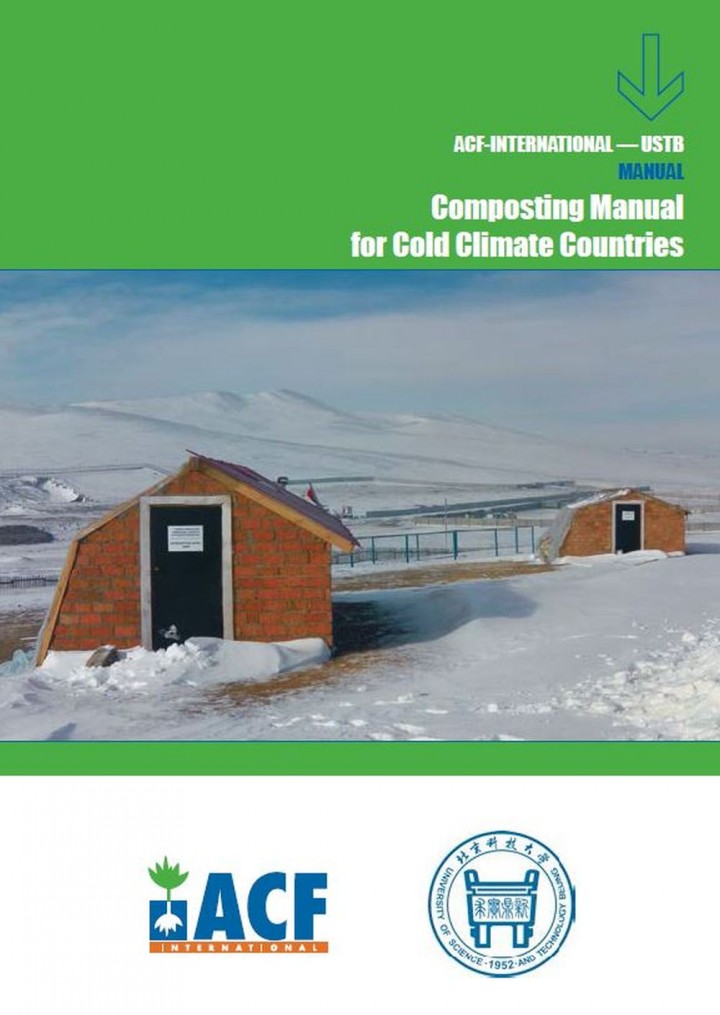
Published in: 2015
Pages: 112
Publisher:
Action contre la Faim (ACF), Paris, France; University of Science and Technology Beijing (USTB), Beijing, China
Author:
ACF & USTB
Uploaded by:
SuSanA Admin
Partner profile:
common upload
4729 Views
173 Downloads
Location of library entry
Composting is defined as the controlled biological decomposition and stabilization of organic substrates under a set of factors (e.g., temperature, moisture content, carbon-nitrogen ratio, degree of aeration, pH level, and physical structure of the raw materials), which allow development of thermophilic conditions as a result of biologically produced heat. The final product should be stable, free of pathogens and plant seeds, and beneficial when applied to land as bio-fertilizer.
The concept of Eco-City (later eco-communities, eco-village, and eco-town) was developed around four decades ago. Various principles, dimensions, and ideas of Eco-City have been applied and included in many studies. Urban metabolism (such as circle of energy, waste and emissions, as well as the protection of the environment) was considered in the first concept of Eco-City in urban context.
Bibliographic information
ACF & USTB (2015). Composting Manual for Cold Climate Countries - Manual 2015. Action contre la Faim (ACF), Paris, France; University of Science and Technology Beijing (USTB), Beijing, China
Filter tags
Composting, vermicomposting (solid waste), composting toilets Educators English Fertiliser Guidelines and manuals Practitioners














